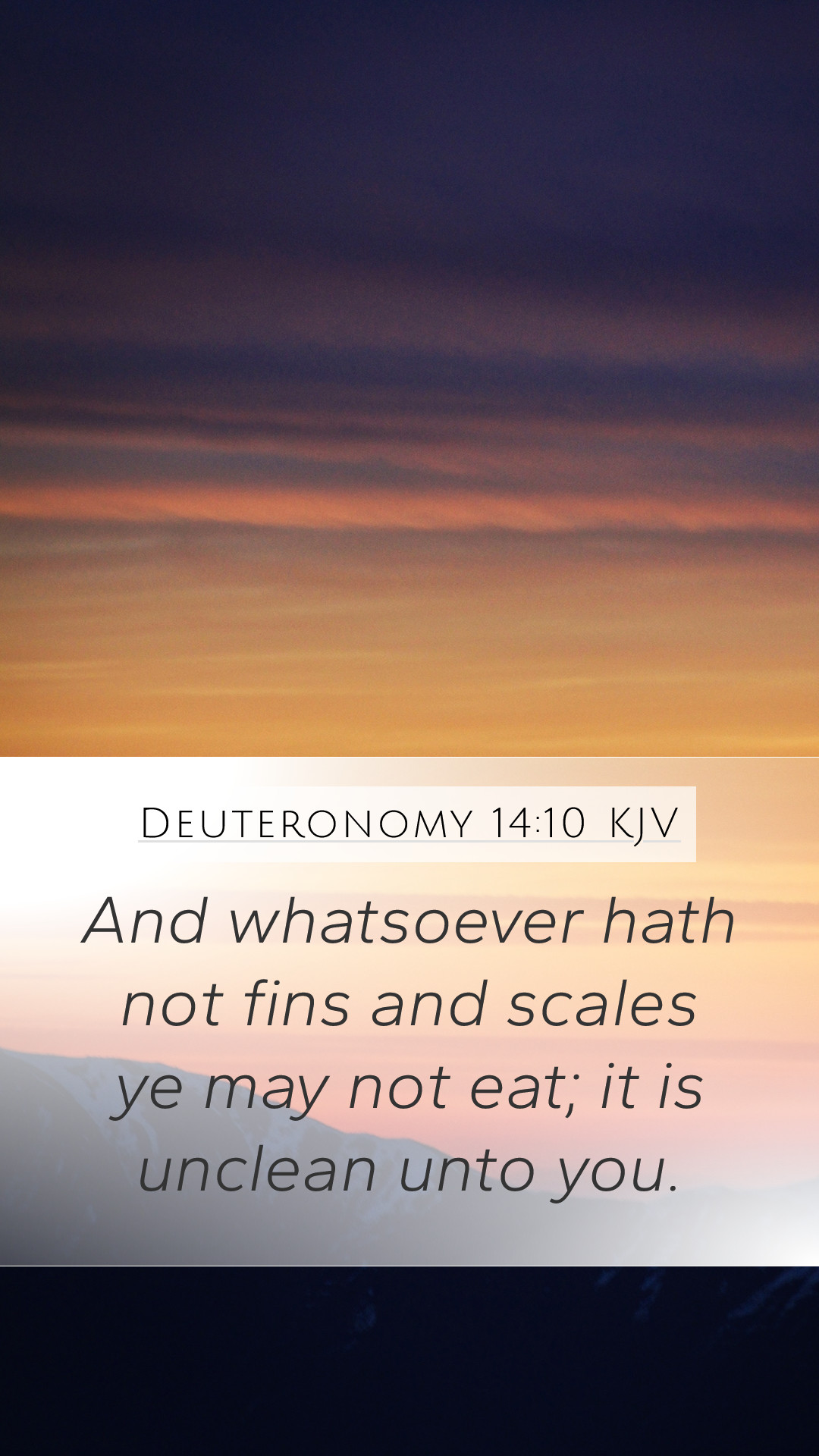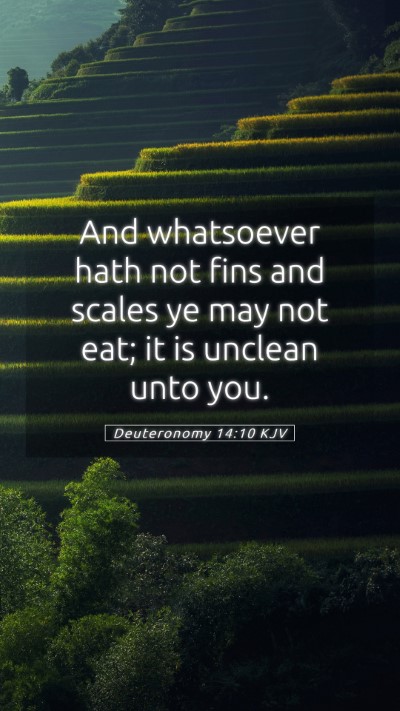Understanding Deuteronomy 14:10
Bible Verse: “But of all clean birds ye shall eat.” - Deuteronomy 14:10
Overview and Context
Deuteronomy 14 serves as part of Moses' instruction to the Israelites regarding dietary laws. This chapter outlines what animals are clean and unclean, emphasizing their importance for spiritual and communal health. Understanding the underlying principles of these laws can lead to deeper bible verse meanings and bible verse interpretations.
Insights from Commentaries
-
Matthew Henry:
Henry emphasizes the necessity of distinguishing between clean and unclean animals as part of God's covenant with Israel. This differentiation highlights God's holiness and the Israelites' need to adhere to divine standards. Eating clean birds represents a way of life that seeks purity in every action, aligning with the larger theme of holiness throughout Scripture.
-
Albert Barnes:
Barnes notes that this verse is part of a comprehensive dietary law intended to regulate not only the physical but also the spiritual lives of the people. By consuming clean creatures, the Israelites are reminded to keep their hearts and actions pure, reinforcing the correlation between diet and spiritual health.
-
Adam Clarke:
Clarke provides a detailed explanation of the types of birds considered clean. He emphasizes the legalistic nature of these commandments while also illustrating how they serve as foreshadowing of Christ’s ultimate sacrifice, which brings about a new understanding of purity and holiness accessible to all believers.
Thematic Elements
This verse encapsulates key themes in Scripture:
- Holiness and Purity: The dietary laws illustrate the principle that God’s people are to be set apart, promoting a lifestyle that reflects His character.
- Obedience: The requirement to adhere to these guidelines serves as a test of loyalty and faithfulness to God's covenant.
- Symbolism: The clean birds can be viewed as symbols of spiritual health, representing the higher standards God holds for His followers.
Application in Daily Life
For those engaged in bible study groups, understanding this verse can lead to discussions on modern-day applications of purity in our lives. How can we reflect this concept of being 'clean' in our hearts and actions today? This examination can deepen one's bible verse understanding and inspire practical applications.
Cross References
- Leviticus 11:13-19: A detailed list of unclean birds.
- 1 Peter 1:16: "Be ye holy, for I am holy."
- Matthew 15:17-20: Jesus discusses what truly defiles a person.
Conclusion
By studying Deuteronomy 14:10 through varied commentaries and applying the insights gained, believers can enhance their Bible study insights. The practice of understanding such scripture analysis not only informs personal faith but also guides the community in Bible study resources and teaches.


